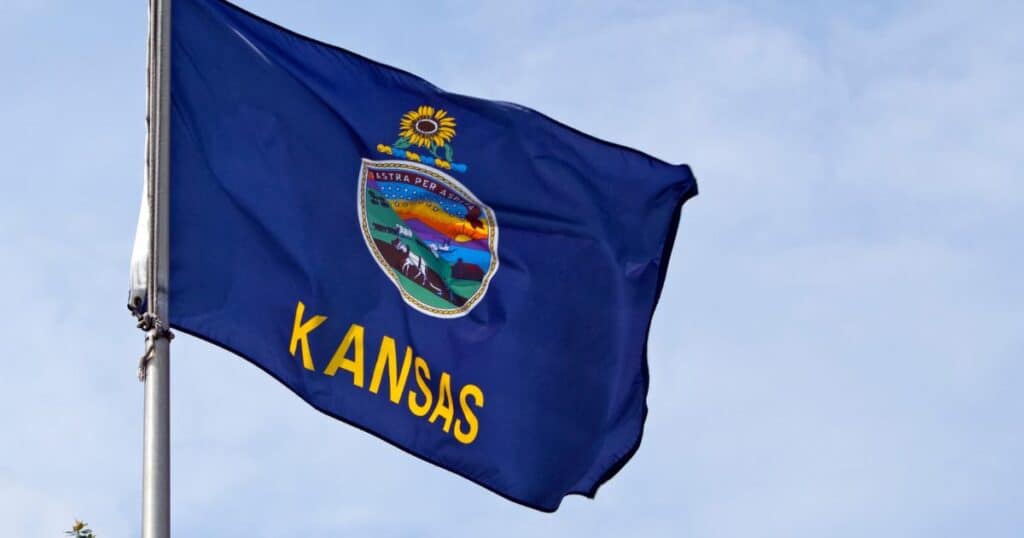The debate on medical cannabis has taken the stage in Kansas with the introduction of a new Senate bill, SB 555, aimed at introducing a medical marijuana pilot program in the state. The bill’s goal to take tentative steps toward medical cannabis legalization appears well-intentioned. However, the devil is in the details, and on closer inspection, SB 555 falls short in several crucial areas, prompting criticism from advocates and stakeholders alike.

At its core, SB 555 lays the groundwork for a medical marijuana pilot program, tentatively set to begin later this year. The proposed program comes with a host of stringent regulations that reflect a conservative approach to cannabis reform. Some notable things we saw in the bill are:
- Creates a pilot program for medical marijuana run by the Department of Health and Environment.
- Limited list of “Qualifying medical conditions” in order to obtain prescription by a doctor. (16)
- A limited number of licenses for cannabis operators (4).
- The smoking, combustion or vaporization of medical cannabis or medical cannabis products is prohibited. The inhalation of vapors released by the non-combustive heating of cannabis flower shall not be considered smoking or vaporization.
- A 35% cap on THC content in flower. Any medical cannabis having more than such amount of THC shall be processed into medical cannabis products or destroyed.
- Medical cannabis flower, pills or tablets, tinctures, patches, or ointments are the only forms of medical cannabis that may be dispensed.
- Regulations limiting the amount of cannabis a patient can obtain (200mg per 30 days).
- Medical cannabis purchases must be made through established accounts at distribution hubs, funded via bank transfers, ACH transfers, or debit transactions – no cash or credit card payments allowed.
- Lack of any social equity provisions, and also no home grow.
While the bill carves out a framework for legal access to medical cannabis for patients with certain qualifying conditions, its limitations have drawn early critique for arguably stifling the very access it aims to provide.
Shortcomings Under Scrutiny
The most vocal critique of SB 555 has been directed towards its licensing provisions. The measure restricts licenses to only four vertically integrated cannabis operators statewide. This has stirred controversy, with detractors arguing that such exclusivity would essentially create a monopoly, sidelining a significant portion of existing cannabis and hemp industry stakeholders who have long prepared to enter the medical cannabis space.
The Kansas Cannabis Chamber of Commerce has denounced this approach, stating that the bill’s framework overlooks the current ecosystem of growers, processors, distributors, and retailers who have invested time and resources to align with anticipated regulations. Limiting the lion’s share to a select few licenses instead of supporting a broader pool of local businesses is seen as counterproductive to a fair and competitive market.
“The extreme limitations on medical cannabis in this bill are going to hurt more people than they help,” said Erren Wright, KCCC president. “Licensing only four people in the state to participate in growing, processing and dispensing medical cannabis is a disservice to the thousands of small business owners and advocates who have fought for medical cannabis. Most importantly, it is a disservice to the Kansas patients who have waited longer than everyone else in the country to legally access this life saving medicine.”
“The current Kansas cannabis community of growers, processors, distributors, like myself, and retailers, do not support the pilot program as it’s been proposed,” said Troy Flager, owner, SugarLeaf Distributing, and Vice President of the KCCC. “There are literally hundreds of Kansas business people involved in the hemp and cannabis supply chain already and 99.9% of us are completely cut out of this bill.”
“We’ve spent so much time and money complying with ever-changing regulations in this space. We care about the products we sell and the people who benefit from them. Hopefully elected officials will see through the proposed pilot program and support more reasonable bills that have been proposed over and over again in this state. I certainly want to see progress on the important matter of medical cannabis, but not like this. There are only 4 winners in the pilot program.”
Further criticism points to the lack of equity provisions, such as expungements for past cannabis convictions and prioritized licensing for those affected by prohibition. These provisions are standard in many states that have embraced medical marijuana and are aimed at redressing the social and legal imbalance created by cannabis criminalization.
Advocates Push for More Progressive Solutions
Beyond the bill’s specific provisions, the broader sentiment of medical cannabis advocates is that Kansas legislation, including SB 555, lacks the progressive vigor needed to align with the evolving national view on cannabis. In a time when a majority of Americans have access to some form of legal cannabis, Kansas’ proposal is seen as a tepid response to the growing body of research on the benefits of medical marijuana.
Advocates are calling for a more comprehensive program that truly prioritizes patient access and the involvement of a wider array of local businesses. They reinforce that any step toward legalization should be thoughtful and inclusive, reflecting the input of the community it serves. In short, the bill’s approach risks not fully addressing the needs for which medical cannabis is sought.

The road to medical cannabis in Kansas is fraught with complex legal and ethical considerations. The state’s conservative leanings, coupled with emerging policy developments, create a challenging environment for crafting cannabis legislation that satisfies both advocates and policymakers.
While SB 555 represents a step — albeit a tentative and, some argue, a misdirected one — toward medical cannabis in Kansas, it is clear that the bill reflects only the beginning of a dialogue rather than a definitive solution. The debate ignited by this legislation serves as a poignant reminder that the path to cannabis reform must be navigated thoughtfully, with an eye toward inclusivity, fairness, and the ultimate goal of public health.
In the end, Kansas stands at a pivotal juncture, where its approach to medical marijuana legislation will not only affect the width of patient care but also could set the tone for future cannabis-related policymaking. It’s a time for lawmakers to really hear their constituents and for advocates to stress how crucial this program is, not just in terms of legality but fairness too.

















